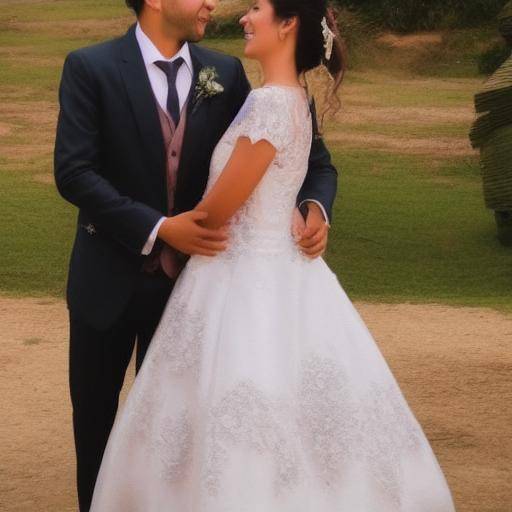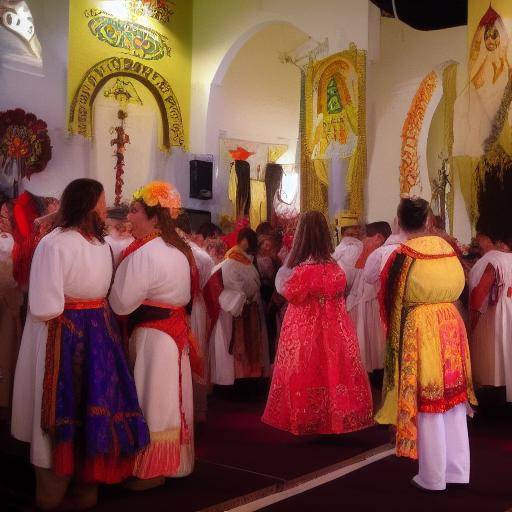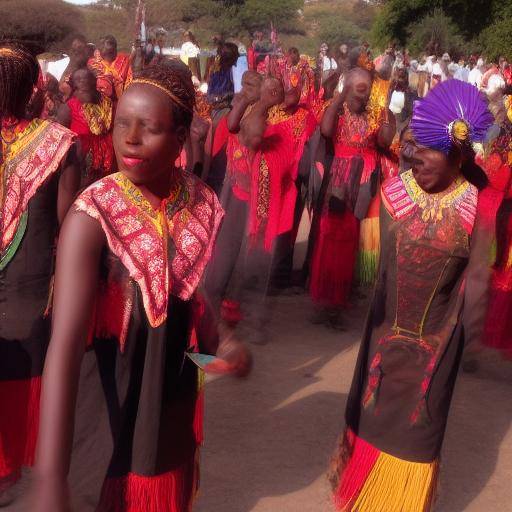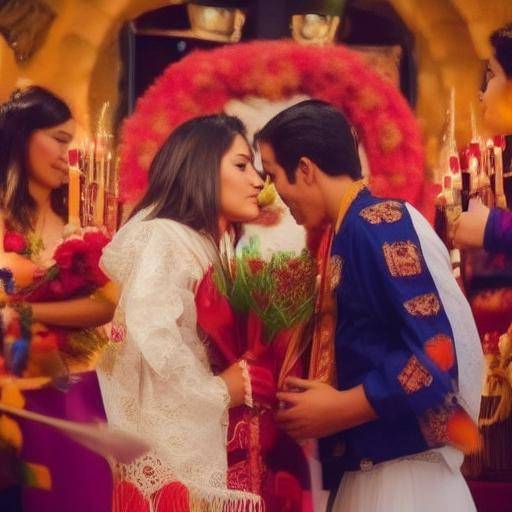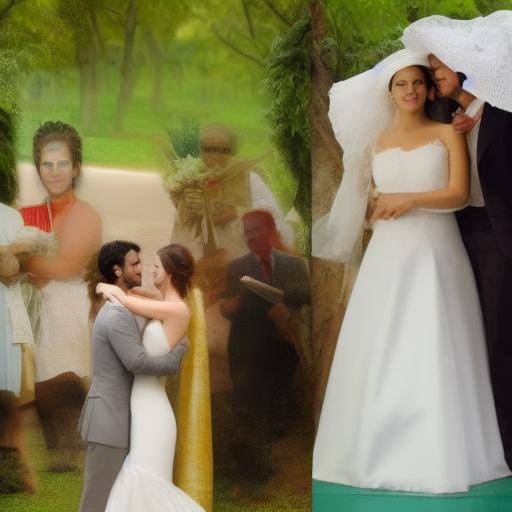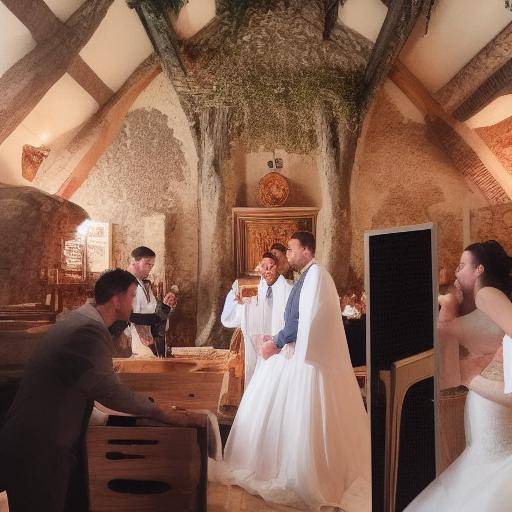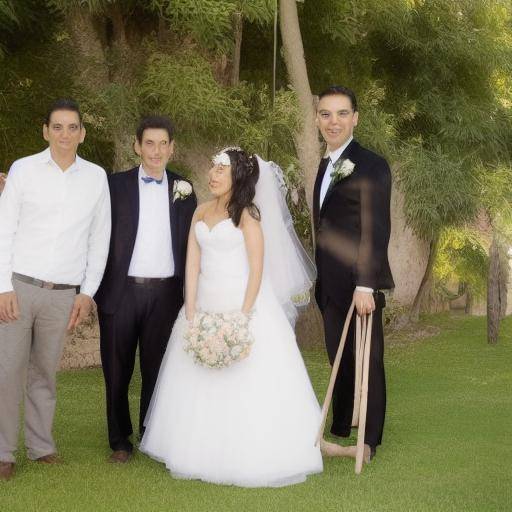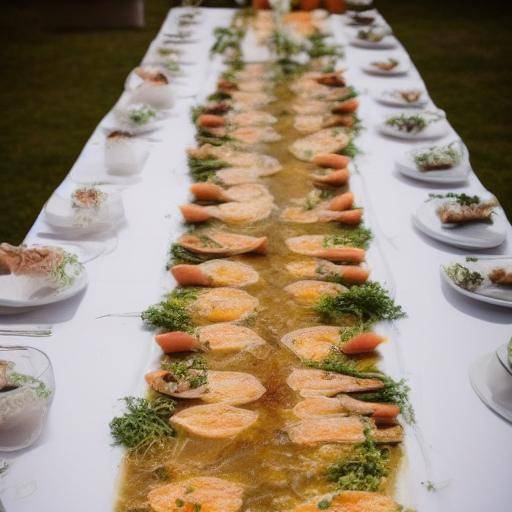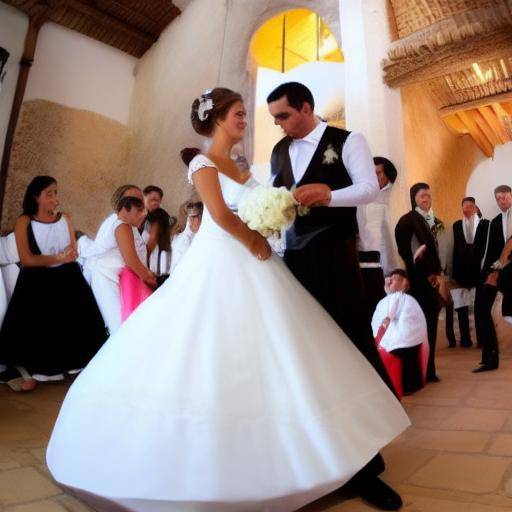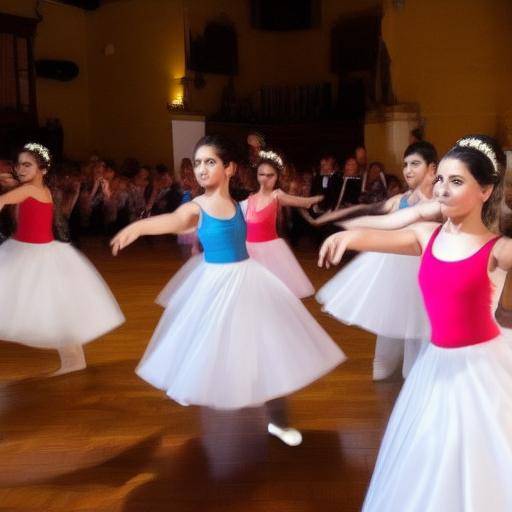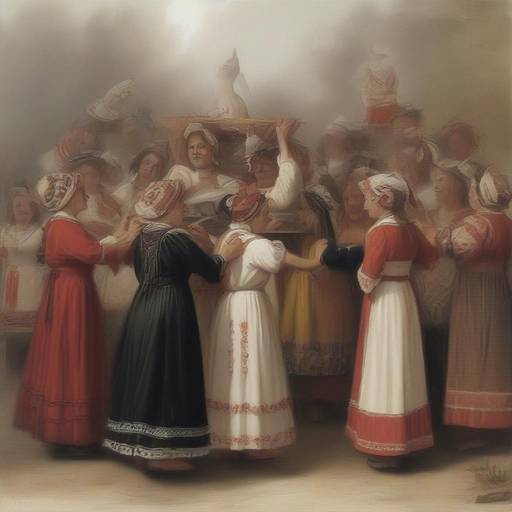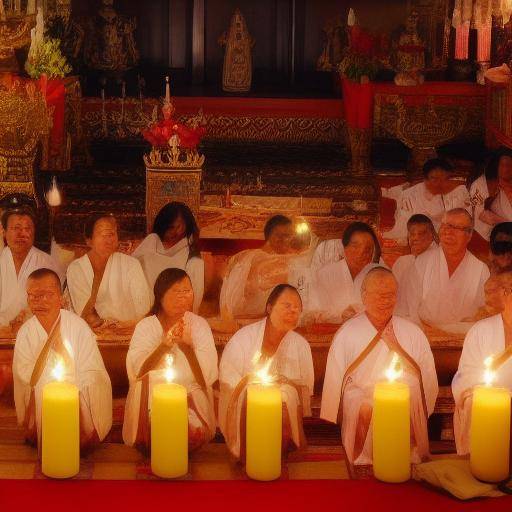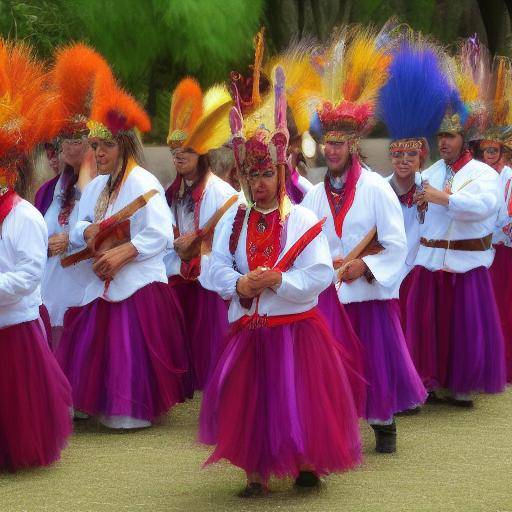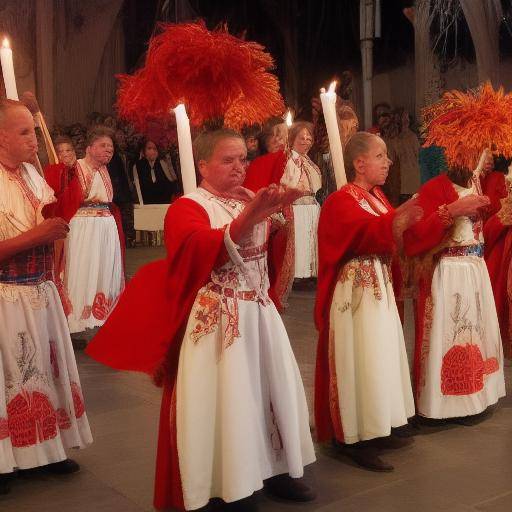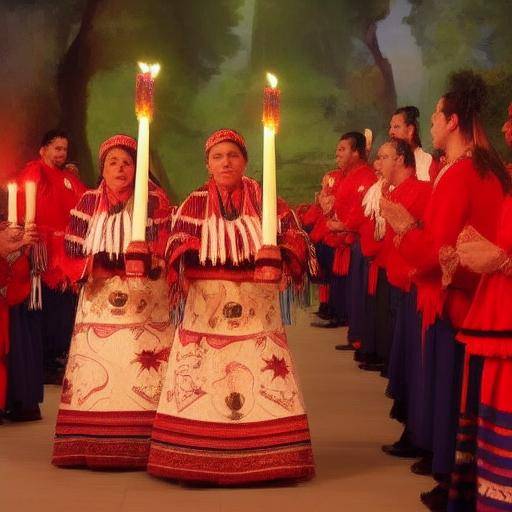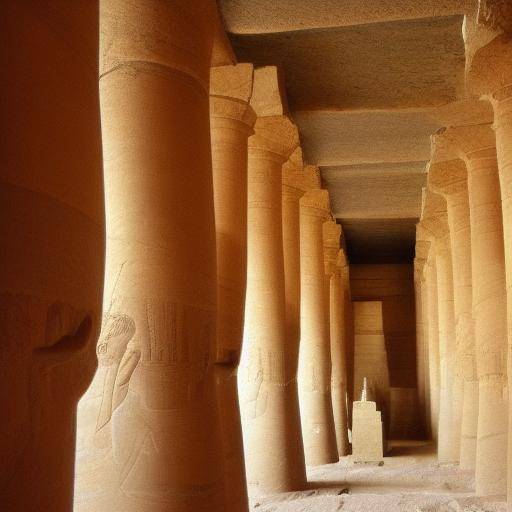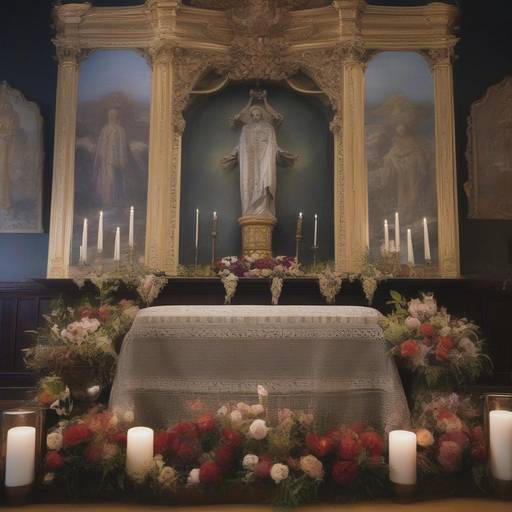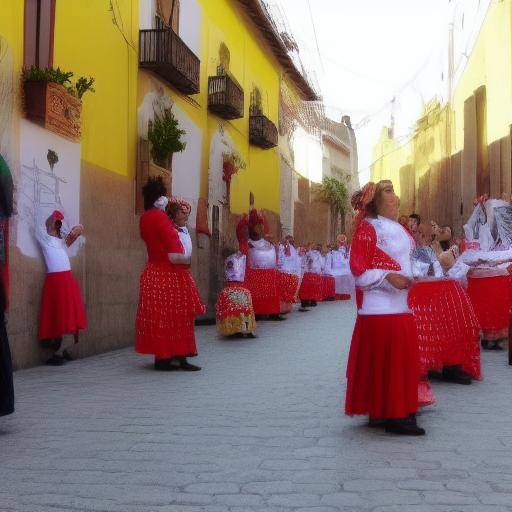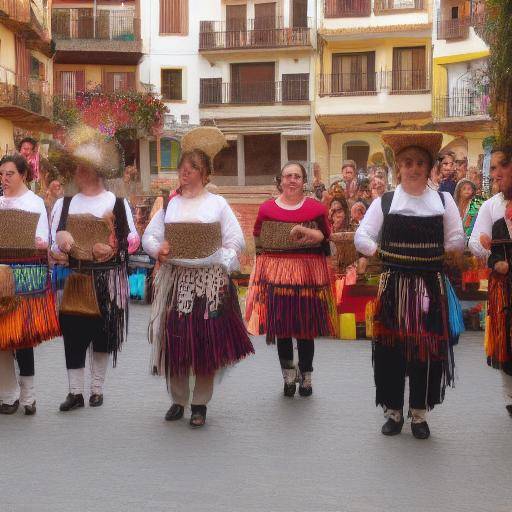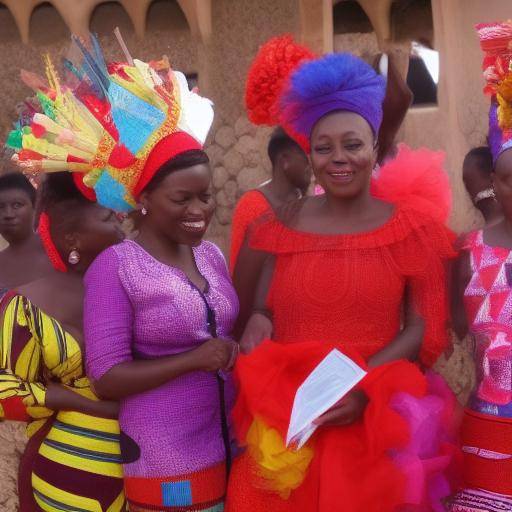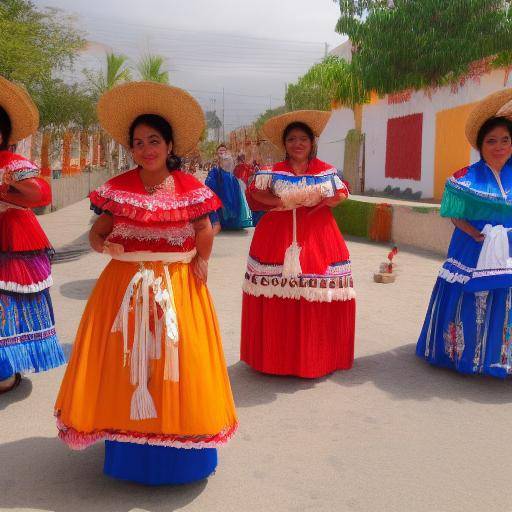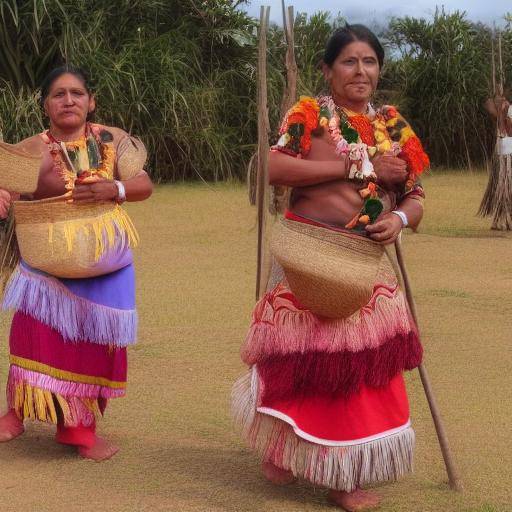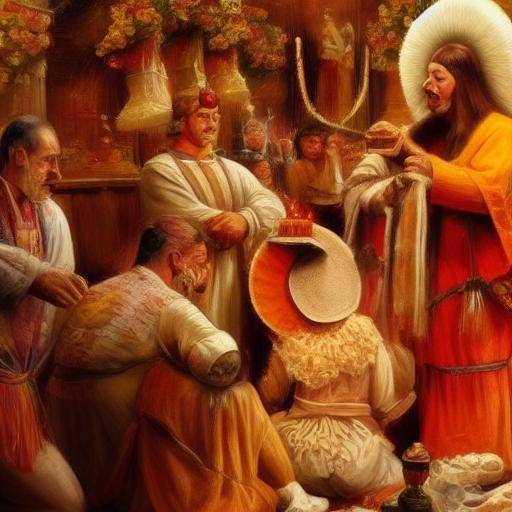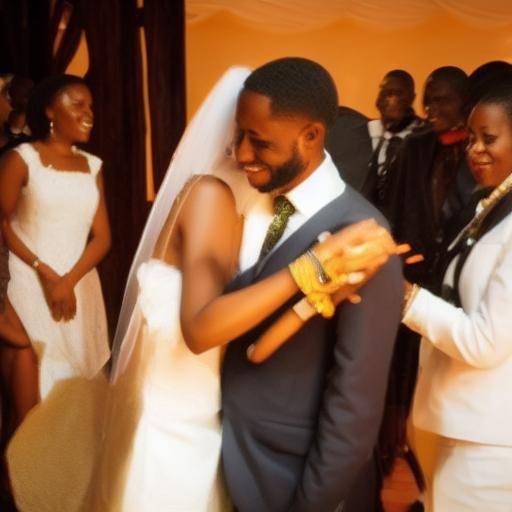
In African culture, marriage is a celebration full of rites and traditions rooted in history and symbolic meaning. From traditional ceremonies to modern influences, every aspect of African marriage reflects the rich cultural diversity of the continent. In this article, we will thoroughly explore the marriage in African culture, its rites and celebrations, providing a detailed view of the traditions, meaning and evolution of this important event.
Introduction
In the vast and diverse region of Africa, marriage is much more than a mere union between two people; it is an event that unites families, communities and, in many cases, reflects the rooted beliefs and traditions of past generations. Throughout this article, we will explore the historical evolution of marriage in African culture, the rites and associated celebrations, as well as its relevance in modern society.
History and Background
Marriage in African culture has its roots in a rich and diverse history. From ancient tribal rituals to colonial influences, the institution of marriage has experienced significant evolution over the centuries. Marriage practices vary considerably between different ethnic groups and African societies, each with its unique set of rites and traditions. Over the years, marriage has adapted to the changing social and economic realities of the continent, while maintaining its profound cultural significance.
Today, marriage in Africa continues to be an amalgam of ancient and modern traditions, with ceremonies that reflect the rich cultural diversity of the continent. From traditional weddings in rural villages to urban weddings influenced by global trends, the ritual of African marriage remains an event of great social and cultural importance.
Detailed Analysis
Marriage in African culture plays a key role in social cohesion and intergenerational transmission of values. In addition to being a celebration of love and commitment, African marriage focuses on family unity, cultural identity and community solidarity. Marriage rites vary widely among different African regions and ethnic groups, and often reflect key aspects of everyday life, such as agriculture, fertility and connection to the supernatural.
Polygamy is a common practice in many parts of Africa and reflects rooted cultural values. Although polygamy is less common in urban areas and among younger generations, it continues to play a significant role in many African communities, where marriage can involve union with multiple partners.
Comprehensive review
In analyzing the institution of marriage in African culture, it is important to highlight both its positive aspects and the challenges it poses in modern society. While the African marriage has been a pillar of stability and social cohesion, it has also faced criticism of gender issues, entrenched traditions and social pressures. In a contemporary context, many Africans seek a balance between preserving cultural traditions and adapting to a constantly changing world.
Furthermore, the institution of marriage in African culture poses a number of legal and social challenges, especially with regard to issues such as inheritance, child custody and individual rights. As African societies continue to evolve, marriage and its rites face the need to adapt to a constantly changing context.
Comparative analysis
By comparing marriage in African culture with other marriage traditions in the world, both similarities and fundamental differences are evident. While some practices and rituals are unique to African culture, others share common aspects with marriage ceremonies in other parts of the world. From the importance of the family to the celebration of love and unity, African marriage shares fundamental values with many other cultures, demonstrating the universality of the institution of marriage.
However, differences in rites and celebrations are equally remarkable. Traditions such as the payment of dowry, purification ceremonies and spiritual connection rituals distinguish African marriage from other marriage practices worldwide. These differences offer a fascinating view of the complexities and uniqueities of African culture, providing a deep understanding of marriage traditions on the continent.
Practical Tips and Recommendations
For those who seek to understand and participate in African marriage celebrations, it is essential to respect and understand the importance of rites and traditions. Respectful participation in traditional ceremonies, respect for local customs and appreciation for the rich cultural diversity of Africa are key to contributing significantly to the celebration of marriage in African culture.
It is essential to recognize that there are significant differences between the various African marriage practices, so it is crucial to be open to learning about the specific traditions of each community and region. In doing so, we can truly and respectfully honor the beliefs and rituals that form an integral part of the African marriage.
Conclusions and FAQs
Conclusions
In conclusion, marriage in African culture is a deeply rooted event in the history, tradition and cultural significance of the continent. Through its rites and celebrations, it reflects the rich diversity and fundamental values of African societies. As Africa continues to transform, marriage remains a pillar of stability, social cohesion and intergenerational transmission of values.
Frequently asked questions
What are some of the most common marriage rites in African culture?
Common marriage rites include the payment of dowry, purification ceremonies, spiritual connection rituals and community festivities that celebrate the union of families.
How can you participate respectfully in an African wedding ceremony?
Respectful participation involves understanding and respecting local traditions, being open to learning about the specific customs of each community and region, and truly honoring the beliefs and rituals that form an integral part of the African marriage.
What is the importance of marriage in African culture?
Marriage in African culture is fundamental for social cohesion, the transmission of values and the celebration of family unity. In addition, it reflects the rich cultural diversity and rooted traditions of African societies.
What are the contemporary challenges of marriage in African culture?
Contemporary challenges include issues related to adaptation to a changing world, preserving cultural traditions, balancing values rooted in social pressures and addressing legal and social challenges.
What are some similarities and differences between African marriage and other marriage traditions?
The African marriage shares fundamental similarities with other marriage traditions in the world in terms of family importance, the celebration of love and unity. However, it is distinguished by unique rituals, traditions and practices that reflect the cultural diversity of the African continent.
What role do marriage rituals play in contemporary African society?
Marriage rituals continue to play a vital role in contemporary African society by maintaining social cohesion, transmitting cultural values and celebrating family unity, adapting to a constantly changing context.
This comprehensive analysis of marriage in African culture, its rites and celebrations offers a profound and enriching view of one of the most significant institutions on the African continent. In understanding its historical evolution, its cultural importance and the contemporary challenges it faces, we can appreciate the wealth and diversity of marriage traditions in Africa.
Concluding, marriage in African culture is much more than a social event; it is a living testimony of African history, identity and community life. As it continues to evolve, it remains a pillar of African society, where traditions, values and the union of families and communities are celebrated.
In exploring and understanding the rich diversity of African marriage traditions, we can appreciate and celebrate the depth of the culture of the continent and the lasting meaning of marriage in African society.
Final word FAQ count: 558
As we thoroughly explore the marriage in African culture, its rites and celebrations, there is a deeper understanding and appreciation for the rich diversity and meaning of marriage on the continent. With rites rooted in cultural history and identity, African marriage remains an emblematic event that unites families and communities, reflecting the profound importance of marriage traditions in Africa.


